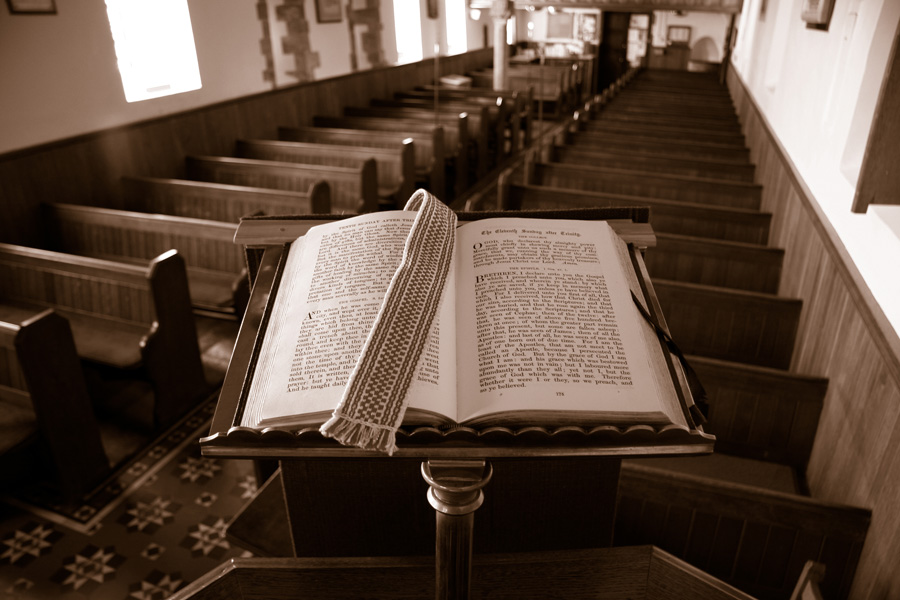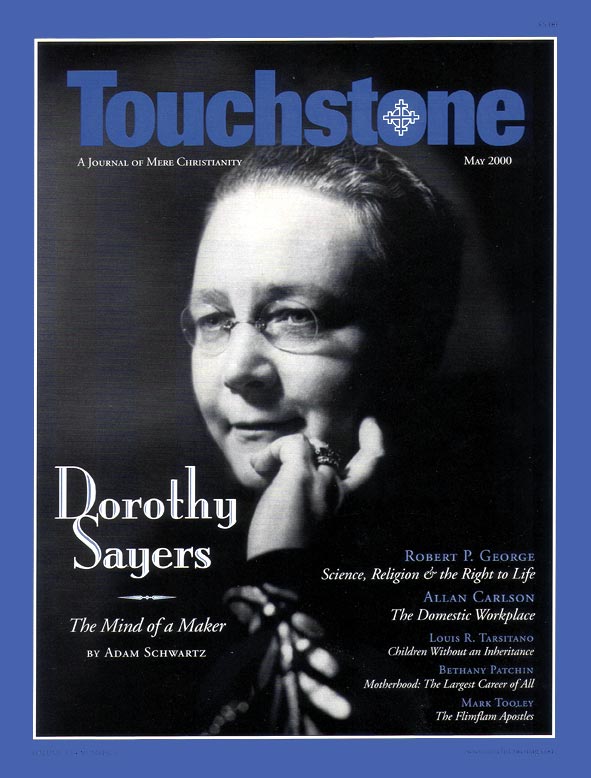Feature
God’s Reasons
Science, Religion & the Right to Life
Appeals to religious authority have their place. That place is plainly not, however, in philosophical debates, including philosophical debates about public policy. Do such appeals have a legitimate place in political advocacy? I think they do, but, at the same time, I have some sympathy with Professor John Rawls’s proposition that such appeals are legitimate only where they are offered to buttress and motivate people to act on positions that are defensible without such appeals.
Like Rawls, I believe that public policy should be based on “public reasons.” And while I believe that Rawls’s own particular conception of what qualifies as a “public reason” is unreasonably narrow—its narrowness in effect stacking the deck in favor of legal abortion, “same-sex marriage,” and other positions held by liberals in contemporary debates over morally charged issues of public policy—the idea that public policy ought to be based on public reasons strikes me as, well, reasonable.1
It is not, however, unproblematic. Anyone who believes that God has revealed that the public policy of a certain polity must be settled in a certain way has, so far as he can tell, an absolute, indefeasible reason for supporting that way of settling public policy irrespective of whether there are any grounds apart from revelation for the policy. My scruples, or Rawls’s, would—and should—simply cut no ice for a person in this position. And if I happen to be the person in that position, or if Rawls happens to be that person, then I, or he, would be irrational in declining to lay aside our scruples.
I suppose that when push comes to shove, those of us who hold these scruples believe that it just isn’t the case that God sometimes reveals that public policy ought to be settled in a certain way irrespective of whether there are any grounds apart from revelation for settling policy in this way. Such people either don’t believe in God, or (and this is my view) don’t believe that God operates this way (at least we don’t believe that he operates this way these days). It seems, then, that our differences with those who don’t hold these scruples implicate in this way certain theological judgments.
Reason & God’s Reasons
People who do not hold these scruples may believe either that God (at least sometimes) has no reason for the public policies he commands or (at least sometimes) has no reason he chooses to make available to human understanding. As they see it, God’s reasons, if he has any, are (at least sometimes) opaque to us. “Ours is not to question why, ours is but to do or die.”
But, of course, this understanding of how God operates is one possible theological understanding among others. Many, perhaps most, serious religious believers in our society have a different understanding. To be sure, they believe—we believe—that God is a God of justice, who cares what the public policy of our society is on morally significant questions—e.g., abortion, euthanasia, and marriage and sexuality, not to mention capital punishment, civil and human rights, military policy, economic justice, etc. And a great many believers, though not all, believe, as I do, that God wills that the unborn, handicapped, and frail elderly be protected by law, and that the institution of marriage as a permanent and exclusive union of one man and one woman be preserved against the corrupting influences of sexual immorality.
But we also believe not only that there are reasons (even apart from revelation) for these policy positions, but also that these reasons are (or, at least, are among) God’s reasons for willing what he wills. Indeed, it is our view that often the identification of these reasons by philosophical inquiry and analysis, supplemented sometimes by knowledge derived from the natural and/or social sciences, is critical to an accurate understanding of the content of revelation in, say, the Bible or Jewish or Christian tradition.
Perhaps the best example is in the area of marriage and sexual morality. Philosophical inquiry is indispensable to the project of fully understanding the meaning and implications of the proposition revealed in chapter two of Genesis and in the Gospels that marriage is a “one-flesh union” of a man and a woman.2
Another example is that of abortion, where both philosophical analysis and knowledge obtainable only by scientific inquiry were essential to settling, and continue to be essential to understanding the precise content of, the authoritative teaching of the magisterium of the Catholic Church declaring direct abortion to be intrinsically immoral and a violation of human rights.3
Robert P. George is McCormick Professor of Jurisprudence and Director of the James Madison Program in American Ideals and Institutions at Princeton University (web.princeton.edu/sites/jmadison). His books include In Defense of Natural Law (Oxford University Press) and Conscience and Its Enemies (ISI Books). He has served as chairman of the U.S. Commission on International Religious Freedom. He is a senior editor of Touchstone.
subscription options
Order
Print/Online Subscription

Get six issues (one year) of Touchstone PLUS full online access including pdf downloads for only $39.95. That's only $3.34 per month!
Order
Online Only
Subscription

Get a one-year full-access subscription to the Touchstone online archives for only $19.95. That's only $1.66 per month!
bulk subscriptions
Order Touchstone subscriptions in bulk and save $10 per sub! Each subscription includes 6 issues of Touchstone plus full online access to touchstonemag.com—including archives, videos, and pdf downloads of recent issues for only $29.95 each! Great for churches or study groups.
Transactions will be processed on a secure server.
more on Science from the online archives
more from the online archives

8.4—Fall 1995
The Demise of Biblical Preaching
Distortions of the Gospel and its Recovery by Donald G. Bloesch
calling all readers
Please Donate
"There are magazines worth reading but few worth saving . . . Touchstone is just such a magazine."
—Alice von Hildebrand
"Here we do not concede one square millimeter of territory to falsehood, folly, contemporary sentimentality, or fashion. We speak the truth, and let God be our judge. . . . Touchstone is the one committedly Christian conservative journal."
—Anthony Esolen, Touchstone senior editor












